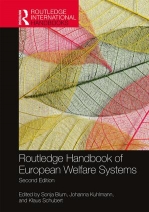

The Incomplete Transition of the Italian Welfare State.
Guardiancich, I. and Natali, D. (2020). The Incomplete Transition of the Italian Welfare State. In Blum, S., Kuhlmann, J. and Schubert, K. (eds): Routledge Handbook of European Welfare Systems, 2nd Edition. London: Routledge, 291-309.
After 25 years of relentless reform efforts, Italy can be said to have increased the financial sustainability of its social policies and eliminated some of the most glaring iniquities ingrained in its welfare state. However, some undeniable successes cannot mask the many shortcomings. The great distortions (geographical, functional, occupational, related to gender, generational) that reverberate throughout the Italian welfare state have not disappeared. A recalibration towards modern social investment has been only partially put into practice. Indirectly, such absence of radical and coherent restructuring has contributed – via the persistent problems on the labour market – to what the IMF (2016 ) labelled as Italy’s two lost decades, as production is not expected to return to its pre-crisis (2007) peak until the mid-2020s.